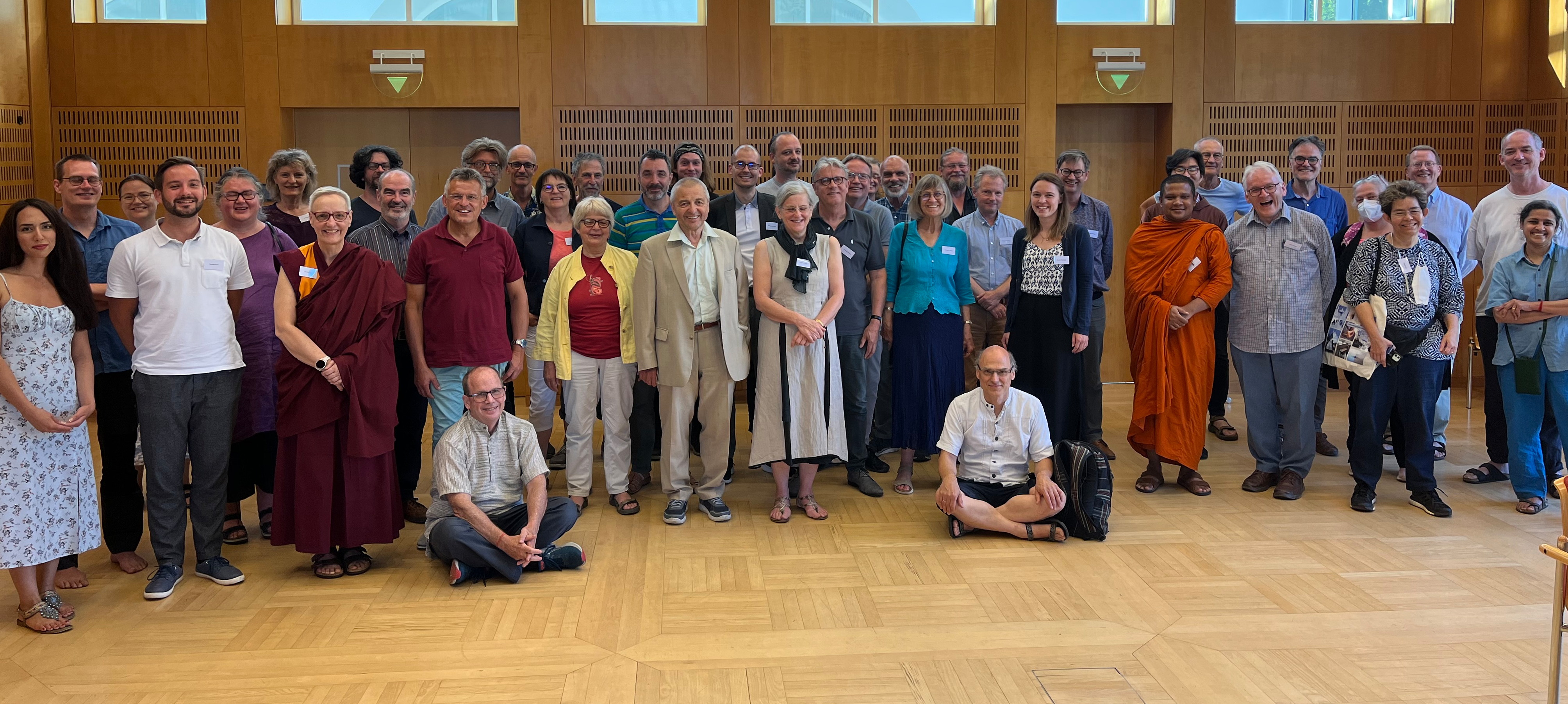
Euro-Buddhism and the Role of Christianity.
Organized by the European Network of Buddhist-Christian Studies in Cooperation with the University of Salzburg.
St. Virgil, Salzburg, Austria, 30.6-4.7.2022
Conference Report

In the course of its long history, Buddhism has spread over many different cultures in South-, Southeast- and East-Asia. In each culture it has undergone significant transformations due to the multifaceted interactions with the respective cultures. The 13th conference of the European Network of Buddhist-Christian Studies was dedicated to the role of Christianity within the ongoing process of an emerging Euro-Buddhism. From the beginnings in the late 19th / early 20th century, Buddhism in Europe was often presented by its followers as a persuasive alternative to Christianity. While apologetic and polemical forms of discourse still persist, the situation has nevertheless changed significantly. Many forms of Asian Buddhism have now become present in Europe as, for example, in form of immigrant communities from countries such as Vietnam and Thailand or in form of Tibetan Buddhist masters who established their centres all over Europe. While some of these immigrant communities keep largely to themselves, other forms of Asian Buddhism, as for example “Inter-Being”, have opened their home traditions and adopted distinctly European and even Christian elements. Today, Buddhism in Europe exists in a large variety of forms and with different degrees of individual belonging and/or commitment. There is an increasing awareness that in a number of respects, Buddhists and Christians are now jointly confronted by the same socio-political challenges.
The conference began with an overview on the topic and its various aspects by the Rupert Gethin from Bristol University. This was followed by four papers read by Martin Baumann (Lucerne), Jørn Borup (Aarhus), Thomas Cattoi (Berkeley) and Kurt Krammer (Salzburg) presenting case studies from the history of Buddhist-Christian interaction in various European contexts and discussing the diversity of contemporary Buddhism in Europe. The next two sessions dealt with two significant contemporary challenges that play a crucial role in inner-Buddhist and inner-Christian discourses: the challenge of secularism and the challenge of gender justice. The papers were read by Lieven Boeve (Leuven), Inken Prohl (Heidelberg), Carola Roloff (Hamburg) and Natalie Watson (Cambridgeshire). In the final session of the conference Martin Rötting (Salzburg) and Ursula Baatz (Vienna) analysed the growing phenomenon of Buddhist-Christian hybridities, not merely in terms of individual hybrid religious identities but also in relation to Buddhist movements incorporating features from Christianity. All conference papers will be published together with some selected papers from the open presentations in book format edited by Martin Rötting, John O’Grady and Kurt Krammer, so that the conference will be of ongoing use for both, scholars and reflective practitioners in both religious traditions.
Originally the conference had been scheduled for 2021 but due to the pandemic it was postponed to 2022. It took place from June 30th to July 7th as an in-person event in the conference centre of St. Virgil, Salzburg. There have been 57 participants, including twelve students. Participants came from a wide range of countries, such as UK, Ireland, Switzerland, Denmark, Austria, Germany, Thailand and USA. In five open panels twelve speakers (primarily postgraduates, young and rising scholars) presented current research papers. The conference was organized and carried out in cooperation with the University of Salzburg which lent its support with administrational tasks and student assistants. It also organized a guided tour through Salzburg as part of the cultural program. Martin Rötting, Professor of Religious Studies at the University of Salzburg, Dr. John O’Grady (Dublin) and Mag. Kurt Krammer (Salzburg) edit the conference papers. The volume shall be published with EOS-Editions at St. Ottilien in 2023 (or early 2024).
All members of the board of the European Network of Buddhist-Christian Studies have worked on the realization of the conference on an honorary basis. All invited speakers generously refrained from asking a honorarium so that the European Network of Buddhist-Christian Studies only had to cover their travel expenses, meals, and accommodation. For these and all other expenses related to the realisation of conference, to its planning meeting and to the forthcoming publication, the Network wishes to gratefully acknowledge the financial support given by The Spalding Trust (UK), Evangelisches Missionswerk in Deutschland (EMW), Evangelische Kirche Hessen-Nassau (Germany), European Buddhist Union, Mission Eine Welt (ZÄM) and the Evangelical Lutheran Church in Bavaria. Without this support our work would be impossible.
Perry Schmidt-Leukel Professor of Religious Studies and Intercultural Theology, University of Münster, Germany. Current moderator of the European Network of Buddhist Christian Studies.

